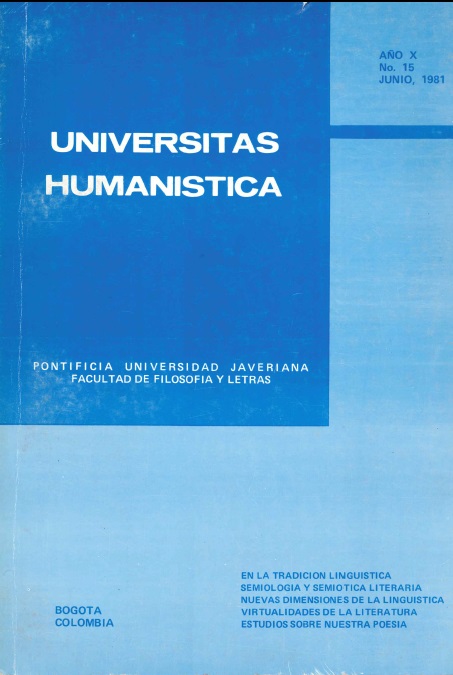Resumen
En el siguiente trabajo se intentan esclarecer y precisar las relaciones entre Lingüística y Literatura a partir de la metodología propuesta por Tzvetan Todorov quien, con su "Poética", pretende crear un método científico para el estudio inmanente de la obra literaria. Aplicando los postulados teóricos de la Poética a un cuento breve de García Márquez ("El ahogado más hermoso del mundo") se muestran las posibilidades y limitaciones de este acercamiento. Aunque esta aplicación no pueda llevarnos a agotar toda la riqueza significativa de los textos, sí facilita notablemente la comprensión objetiva y fiel de los mismos. Ella misma demuestra que algunas corrientes actuales de la Lingüística superan dos limitaciones de la Lingüística tradicional: el olvido de los problemas referentes a la metaforización y el hecho de considerar a la frase como la unidad máxima del análisis. Simultáneamente se resaltan aquellas dimensiones de lo literario que no pueden ser abarcadas por la metodología propuesta.

La revista Universitas Humanística se encuentra registrada bajo la licencia Creative Commons Reconocimiento 4.0 Internacional. Por lo tanto, esta obra se puede reproducir, distribuir y comunicar públicamente en formato digital, siempre que se reconozca el nombre de los autores y a la Pontificia Universidad Javeriana. Se permite citar, adaptar, transformar, autoarchivar, republicar y crear a partir del material, para cualquier finalidad (incluso comercial), siempre que se reconozca adecuadamente la autoría, se proporcione un enlace a la obra original y se indique si se han realizado cambios. La Pontificia Universidad Javeriana no retiene los derechos sobre las obras publicadas y los contenidos son responsabilidad exclusiva de los autores, quienes conservan sus derechos morales, intelectuales, de privacidad y publicidad.
El aval sobre la intervención de la obra (revisión, corrección de estilo, traducción, diagramación) y su posterior divulgación se otorga mediante una licencia de uso y no a través de una cesión de derechos, lo que representa que la revista y la Pontificia Universidad Javeriana se eximen de cualquier responsabilidad que se pueda derivar de una mala práctica ética por parte de los autores. En consecuencia de la protección brindada por la licencia de uso, la revista no se encuentra en la obligación de publicar retractaciones o modificar la información ya publicada, a no ser que la errata surja del proceso de gestión editorial. La publicación de contenidos en esta revista no representa regalías para los contribuyentes.


